Citations & Directories? What are these, how do you acquire them, and what is their value?
You already know that local SEO is a central factor in the success of your digital marketing strategy and that when you’re learning how to improve local search rankings, there are a few different things you can try. One of these tactics is establishing and properly managing citations, a task that beginner SEO strategists and business owners alike should master.
We’re going to take a closer look at how to set up citations and why they matter so much to your SEO goals.
What is a Local Search Citation?
A local citation is created when the name, address, and phone number (NAP) of a local business is mentioned online. Essentially, it’s how online users know your business exists – and how and where they can find you. These citations can be listed in local business directories, social media platforms, and on various websites and apps.
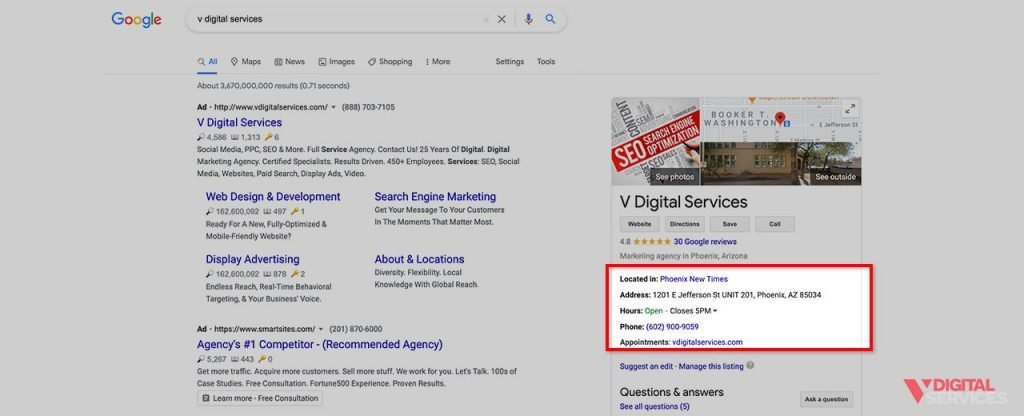 For local businesses, the purpose of local citations is to ensure that online users in their area can easily discover them with relevant local searches. Citations also affect local search rankings, particularly when it comes to ranking on Google Maps.
For local businesses, the purpose of local citations is to ensure that online users in their area can easily discover them with relevant local searches. Citations also affect local search rankings, particularly when it comes to ranking on Google Maps.
Components of a Local Citation
The foundation elements of a citation are the name, address, and phone number of a business. In many cases, a link to the business’s website is also included. But beyond that, there are many elements that can be added, largely depending on the citation platform and business:
- Hours of operation
- Directions
- Business description
- Business category (or categories)
- Images and videos
- Accepted forms of payment
- Reviews (and owner responses)
- Links to social media profiles
- Email addresses
- Alternate phone numbers
- Specific attributes such as whether or not a space is child-friendly, offers outdoor dining, etc.
Why are Citations Important?
When it comes to local SEO, citations can be one of the best ways to improve your local search rankings. And because they’re relatively easy to set up and manage, your investment of time and energy (and expense) is generally pretty low – but the payoff is significant.
Citations are a multi-purpose method that can drive measurable results across the board, including:
- Improving your local rankings, especially when you choose your citations carefully and aim for a balance of quantity, quality, and accuracy
- Offering the opportunity to claim a critical spot on page-one search results, which are often dominated by online business directories
- Earning referral traffic, especially from potential customers who are loyal to certain directories for specific uses
One of the most important things to understand about citations is that your set-up process is key. Unless you take a smart, systematic approach, dealing with citations can end up being a time-consuming mess.
And just like citations can positively impact your rankings for local results on search engines, they can also have a negative effect. If your listings contain inaccurate information, or you’re listed on poor-quality platforms, or are simply few and far between, your opportunity for ranking well can be diminished.
At the end of the day, there are three core reasons you should care about local listings – let’s call them the “Three R’s”: Reputation, Revenue, and Rankings. Citations factor into all of these, making them more than worth your time and effort.
Where Do You Get Local Citations?
Ask a few SEO strategists their opinions on the best citation websites, and you’re likely to get a variety of answers. The fact is that there are several different options for citation websites, and there’s also some debate about which ones are the most valuable. But one thing that the SEO community does agree on is that there are a few citation sites you can’t afford to skip:
- Google Business Profile
- Yelp
- Bing Maps
Types of Citations
Let’s break down the different types of business citations so that you can learn a little bit about each one in more detail:
Major Local Business Data Platforms
There are a handful of local citation opportunities that are a must for every business, many of which are located on a series of core data platforms. These sites include Google Business Profile, Infogroup, Acxiom, and Localeze/Neustar.
Map & Navigation Citations
Google Maps, Waze, Apple Maps, and Where To? are just a few of these navigation citations. These platforms are used daily for directions. Google Maps citations (and navigation citations in general) are extremely important because potential customers rely on that data to contact and locate your physical business. Incorrect information can make it impossible to find you – and you’ll lose out on the money they may have spent.
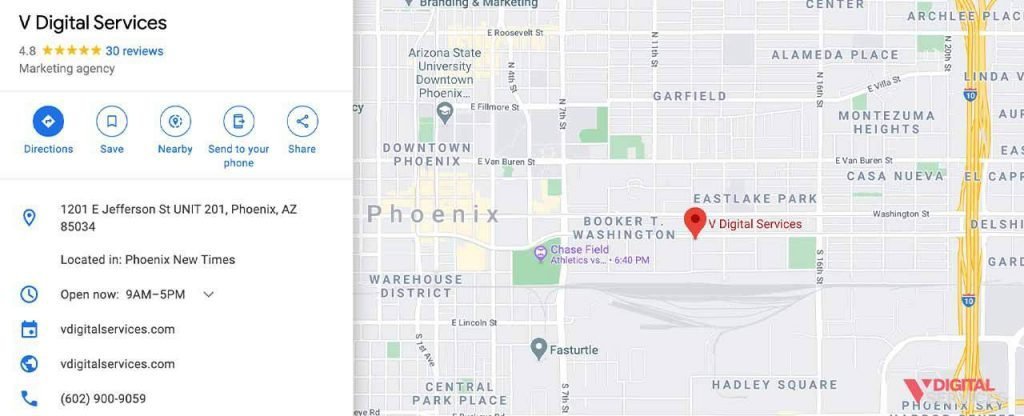 Social Networking Citations
Social Networking Citations
Yelp, Instagram, Facebook, and Tripadvisor are all great engagement platforms for businesses. These platforms also contain reviews which are a large ranking factor in the local space.
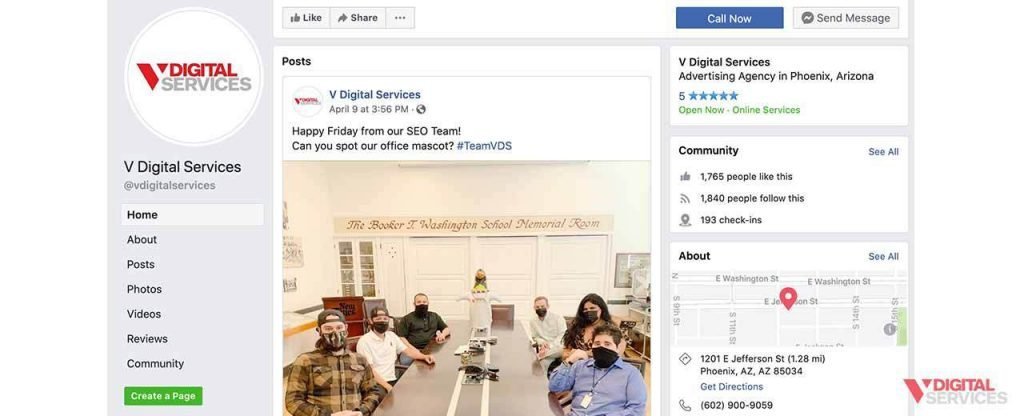 General Publishers
General Publishers
Opendi, Cylex, Hotfrog, and hundreds more! These general citations may not have the engagement or review options but are extremely valuable in keeping location information consistent across the web.
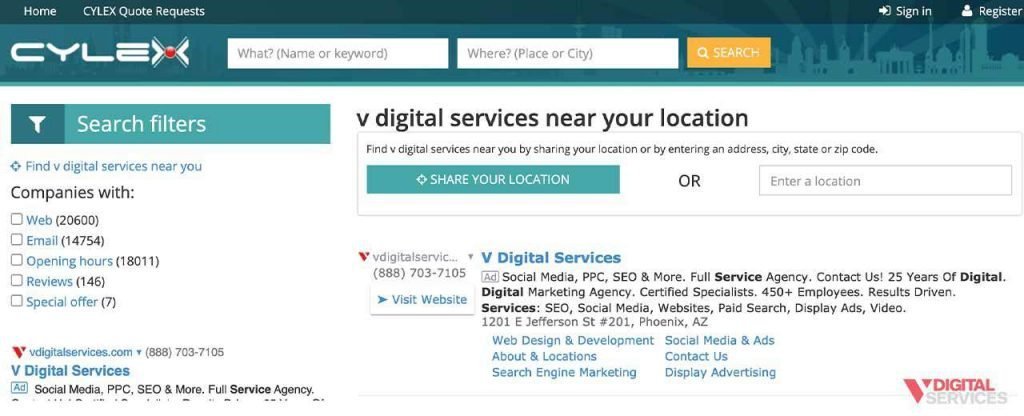 Niche or Geo Citations
Niche or Geo Citations
These are industry or geo-location-specific. Local sites, such as chamber of commerce websites, fall into this category, as do the websites of professional guilds and associations related to your industry. For example, a model train store might work on building citations on sites that belong to their town’s chamber of commerce, regional hobby groups dedicated to model trains, local blogs, and others.
How Many Citations Should a Business Have?
So, is there a minimum number of citations you should be aiming for? Like most questions in online marketing and SEO, there’s not necessarily just one standard answer. Instead, we have two words for you – that you’re probably not going to like: It depends.
Since the goal of local SEO citations is to maximize your online visibility and position in local search rankings, your “ideal number” is going to be based on several factors. Your geographical location and business type will make a big difference in how many local citations are needed to stay competitive. For example, an antique store in a small, rural town in Idaho certainly won’t need as many business citations as a car dealership in Chicago.
As you build citations, your motto should be quality, not quantity. Or, at the very least, quality and quantity. While you should absolutely strive for a robust library of citations, remember that accurate listings on high-quality directories (with higher domain authority) are the gold standard. At a certain point, putting time and energy into an excessive number of listings becomes wasteful.
Also, it’s helpful to remind yourself that while citations are a key ranking factor for local search, there are also countless others. So, your resources should be spread across the SEO and marketing campaigns that will give you the best results in the long term.
How to Check and Manage Local Citations
When it comes to making the most of your citation opportunities, the best first step is to look into already-existing citations. It’s vital that you actively manage citations to make sure that your customers find accurate information with a quick Google search.
Why is ongoing maintenance important for citations?
Although it would certainly be convenient to be able to build listings and then check the task off your list forever, that’s simply not how it works. Even if you have a single-location business, have no plans to change your contact information or physical address, and have next to no competition in your small town, regularly checking your listings is important.
Here’s why:
- Many citation sources allow any user to edit local business listings, which can put your information in the wrong hands. Your competitors, unhappy customers, and even the general public can publish bad or inaccurate data. With an active approach to listing management, you can catch these changes before they have a significant impact.
- Unfortunately, inaccurate data is contagious. If there are a few listings with incorrect information, those details can quickly spread to others. But as long as you’re keeping a close eye on shifts in data, you can make sure it doesn’t get very far.
- A majority of large citation platforms, including social platforms such as Yelp and Facebook, include customer reviews in your business listings. This feedback can be viewed by any user – including potential customers – so you’ll need to be managing and responding to reviews accordingly.
How do I manage my business citations?
There are three ways to find and edit local citations:
1. Manual citation management
In order to manually manage your local citations, you’ll need to set up a system to organize and track the location, accuracy, and status of each one – and there can easily be hundreds. Rather than checking every single online business directory and website, you can rely on a few major data aggregators, such as Facebook and Apple Maps.
As you review your business listings, focus on correcting errors, closing duplicate listings, and updating any necessary information. Keep in mind that this is not a “one and done” task but rather one that will need to become a part of an ongoing to-do list. As new citations are automatically or manually created, or your business details change, you’ll need to prompt edit accordingly.
Manually locating, editing, and managing citations is undoubtedly the most challenging and time-consuming method. In fact, the amount of time and effort required is the main drawback to this option. Without the right experience and approach, you can easily make expensive mistakes or become overwhelmed.
On the other hand, the benefits of manual citation management include having full control over all of your business listings. Rather than work with a third party, you can decide how and when to build citations. This gives you the freedom to easily add your listing to local business associations or industry-specific directories without having any hoops to jump through.
For some businesses, manually managing citations is the best fit. You might want to consider a manual approach if:
- You own a startup with a small budget but plenty of time.
- If you already work with a professional, automated service for the majority of your citation management but are interested in building additional citations on highly specific platforms serving your industry or geographical area.
You also have the option to hire out the task of manual submission and management, if you prefer that over an automatic service.
2. Semi-automated citation management
A partially automated approach to citations can be an excellent middle ground for a wide variety of businesses. In this scenario, a professional service provides you with automated data pushes and updates on specific platforms. Additionally, they also offer the manual creation of listings on specific platforms that are outside the reach of the automatic data push.
With this approach, you have the advantage of access to a broad range of citation platforms. The service provider may be able to add your listing to various sites or platforms that you would not otherwise be able to access, including those within niche industry categories and locations. It saves you the time and effort involved in finding these platforms and creating your listings.
Of course, there are also certain negative aspects. Depending on your budget, you may find that semi-automated management is cost-prohibitive. Also, some services cut corners by using low-quality directories, which generally won’t deliver the results you’re hoping for. For this reason, choosing a reputable service provider is key.
Semi-automated citation management may be a good fit if:
- You have a small-to-large business with some flexibility in your budget.
You are able to locate a provider that will maximize your ROI.
3. Automated citation management
Your third option is a fully automated citation management service. All you’ll need to provide is your business information (name, address, and phone number, as well as additional details if needed), and the site will automatically push the data to various platforms. This approach is sometimes called “aggregator submission” because it typically utilizes major data aggregators such as BrightLocal or Whitespark.
This method comes with the widest range of cost and quality, especially because there are many different automated citation solutions to choose from. Everything from your pricing and capabilities to available partner platforms and the actual functionality of your dashboard can vary considerably.
As you would imagine, choosing a completely automated method is going to drastically reduce time spent on your end. An average business could have thousands of duplicate local business listings, requiring more hours than are humanly possible. Efficiency is the biggest benefit – so what could the drawbacks possibly be?
Ultimately, your experience is going to come down to the provider you select. This is definitely one of those situations in which “you get what you pay for” applies. It’s up to you to determine if the value provided is on par with your investment; for every business owner, that will be a completely personal choice.
Automating your local business citation process can be useful no matter the size or type of your business. But if any of the following scenarios apply to you, then you’re likely to find it especially beneficial:
- You have multiple locations, multiple practitioners, or operate an enterprise-level business, resulting in thousands of citations.
- Your business is in the process of significant changes in citation data as a result of a merger or acquisition, rebranding, a move, or new contact information.
- Your business is negatively impacted by duplicate or inaccurate listings, making it critical to resolve issues promptly.
- You’re interested in using capabilities such as user review alerts, analytics, reporting, bad data alerts, and other high-end features.
How Do You Get Local Business Citations?
So how do you go about building a library of citations? There are a few different approaches; you can manually create logins for each directory and update each. This sounds like a solid plan until you have tons of logins and platforms to update if you need to change your information.
A more systematic approach that agencies use is some form of listing syndication. A syndication platform allows you to make updates to multiple directories within one dashboard. These platforms are normally contracted to each citation with an API that allows you to push data to multiple citations.
I’ve taken both of the above approaches over the years, and I honestly believe that a mixture of both is the key to local ranking and customer engagement.
Here’s a short and sweet, step-by-step guide that will help you learn how to get citations for your business:
1. First, check for local citations that already exist.
Before you jump right into building new citations, you’ll want to see which ones already exist for your business – and whether or not they’re accurate. Once you have a collection of citations, carefully evaluate them to correct any missing or inaccurate information.
2. Start with Google.
There are some SEO experts that consider Google to be such a fundamental asset, and they wouldn’t even call it a “citation.” Whether you would personally label Google as a citation or not doesn’t matter; what does matter is that you have a complete and correct Google Business Profile listing. Google is the king of local search, making it the best place to start your local SEO efforts.
3. Work on creating core structured citations.
There are a handful of high-quality platforms that are open to virtually any type of local business, including Facebook, Bing, Foursquare, and Yelp. Some are free, while others require paid listings. Aim for accurate listings on the core platforms, and eliminate any duplicates.
4. Move on to geo- and industry-specific platforms.
Depending on your industry and location, there will be specialized platforms specifically suited to you. For example, a hotel might create citations on their local chamber of commerce website, community hubs, and travel review websites.
Tip: Not all directories or citations are equal
Larger players in the game like Google Business Profile, Facebook, and Yelp have a ton of added value and are worth the additional management effort they require. In a perfect world with a mixture of individually managed citations with a library of citations just focused on the location data of a business would be ideal. This allows an individual to keep their business data accurate and consistent while also working within the platforms with more user engagement.
To mention Google Business Profile, Facebook, and Yelp again, these platforms have far more engagement options than lesser-known directories like Tupalo, Cylex, or eLocal. These lesser-known directories hold value because they can be used to keep location data consistent. Why is that important? Google will crawl the web and index information about any business. The more a business populates, the higher the ranking value Google gives the business.
So now we’re using the citations and the data within them to our advantage – we have a library of data-driven citations and are also using platforms that users use on a daily to engage with customers. At this point, we have the support of Google with our citation consistency and engagement with local customers. This is a win-win in the citation building game.
Managing Your Citations
Once you’ve created a few new citations for your business, the work isn’t done – actively managing your citations is essential to your search rankings, revenue, and online reputation. Like many aspects of SEO, it’s an ongoing project that you should consider long-term maintenance.
Neglecting to manage your citations properly can turn them from a benefit to a risk to your SEO and online presence. From competitor edits to local listings to inaccurate information, there are several issues that can crop up.
Partner With VDigital Services for Your Local SEO Search Needs
Learn more about how a professional agency partner can keep your Local SEO citation and directory needs up to date by contacting V Digital Services today.

Featured Images: Sammby/Shutterstock

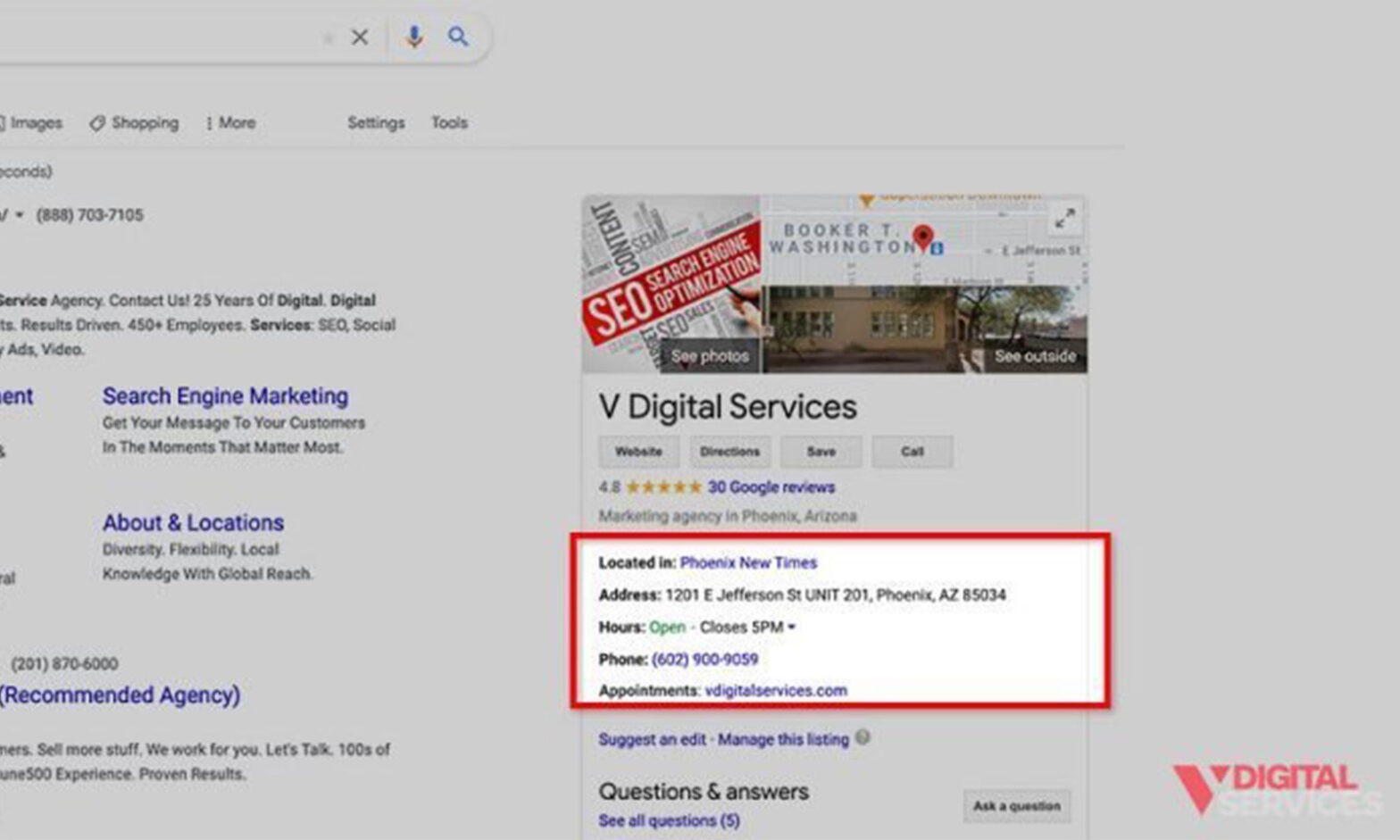
 PREVIOUS
PREVIOUS